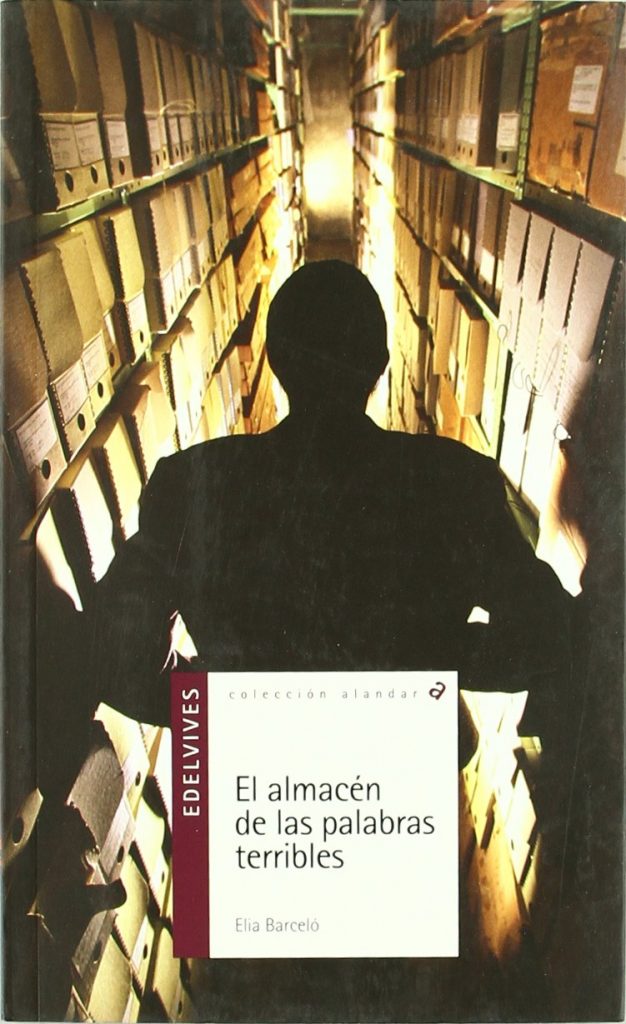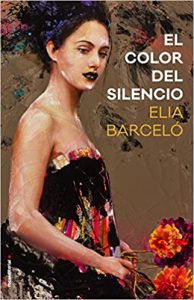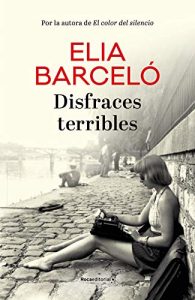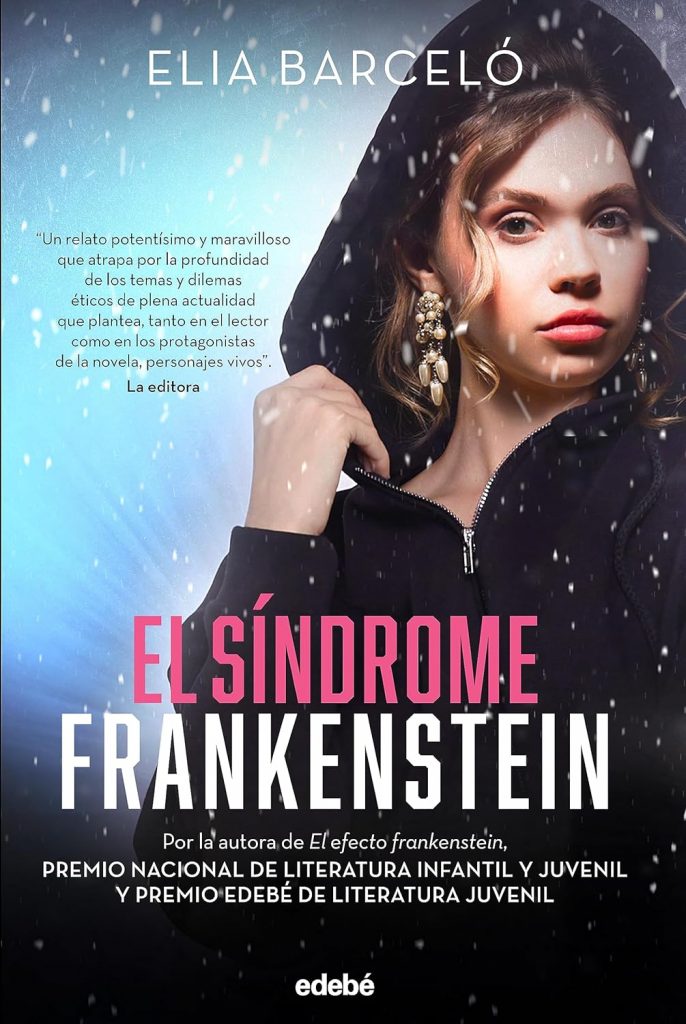When the science fiction and fantasy serve the narrative cause as well as setting, as a tool towards empathy, the result is always a suggestive style within the reach of any reader who wants to undertake a great literary journey. Fantasy as a plot can undertake a reality-transforming task or a leap towards epic or the hardest science fiction.
Elia Barceló makes her forays into either side of fantasy or science fiction. Because even a love story can be approached from a transforming plot of feelings and emotions. In all that Elia Barceló She is a true teacher who knows how to combine the scenery of the impossible in our world with the hook of the most humane extrapolations.
But in addition, this author as soon as she rots in the noir genre as she projects her stories towards a youth audience. Without a doubt a literary development, a craft of writing without restrictions to be able to cover different styles with full solvency.
To begin with, to speak of Elia Barceló is to place ourselves at the top of current fantasy literature in Spain. So delving into his novels is always as exciting as it is enriching.
Top 3 best novels by Elia Barceló
The color of silence
As an author advances in his work, what is called craft is detected in the control of the rhythm, in the ease, in the deepening of the characters, in what is called verisimilitude and which is based on the necessary empathy with any character. .
So I have no choice but to recognize in this novel all that sum of virtues. The greatest enigma that can arise is that of a death without justification, without foundation, without determining its causes.
This book The color of silence It presents us with more than one of those enigmas about lives that end abruptly, with political and family consequences, with a significance that can mark the history of a country or the intrahistory of a family.
Helena Guerrero knows about those traumatic enigmas that are part of her past, only that not even for her all the pieces fit. Her brushes spread on the canvas those shadows that always accompanied her and that end up being sublimated in her valuable and recognized paintings. But Helena had to find her place in the antipodes of her past.
Australia is his new world, in a metaphor for that complete escape from what has shadowed his life forever. It is fair to recognize, to understand this return to Helena's origin, that always, sooner or later, humans seek to reconcile her past, minimizing it or trying to understand it.
It is a task of exorcism necessary to continue living with a fully Self. But Helena's return is not going to be a free reconciliation. The death of her sister in 1969 now appears as a case about which many pending details must be found out.
From Sydney to Madrid to return again to Rabat, where Helena was the happy girl, until everything happened. In Africa we understand the reason for Helena's artistic performance.
The author presents us with this luminous space, saturated with precious nuances in the manner of one of the main character's paintings. Then we can only discover the shadows, what is hidden in so much light. What links Alicia's death with a previous time, the moment in which the coup d'état that started the Spanish Civil War was being prepared.
Terrible costumes
It has to be a great pleasure to be able to do a reissue through the front door, in the popular acclaim plan. AND Elia Barceló he resorts to these terrible disguises of his to appease his reading public, yearning for plots made in Barceló. And the truth is that this plot comes from pearls to accompany some times of general masquerade that end up locating us in the carnival of carnivals. Because nothing is more carnival than our imagination given to reading, and everything that surrounds literary creation. Because the reflection of what is read is reconstructed from nothing between the oscillating lights and shadows of our own reality.
A novel between realist and criminal, in which a biographer investigates the disguises (as terrible as what they hide) of a mysterious existence that, little by little, becomes involved in his own. A disturbing visit to the hindquarters of literary fame.
In the XNUMXs, the prestigious Argentine short story writer Raúl de la Torre, who lives in Paris, rose to fame by publishing his first novel. His popularity as a boom novelist grew with his subsequent works, his unexpected second marriage, and his political involvement. All this places him in the spotlight of the chronicles of society when he decides to publicly discover his homosexuality or when his suicide is known with a gun.
Many years later, the young French critic Ariel Lenormand embarks on the biography of the writer by interviewing those who knew him: his editor, his friends and, above all, Amelia, his puzzling and sophisticated first wife, partner and support of the author throughout of their life. But the mysterious world that surrounded the writer threatens to become part of the biographer's life. What dark pressures led him to confess his homosexuality in a time when no one did? Why did he commit suicide? What is the terrible mystery that hides his novelistic work? Why are witnesses lying after so many years?
The warehouse of terrible words
Writing juvenile novels can end up being considered a naive accommodation intention of any type of story. But in the case of Elia Barceló the task is undertaken from the empathy with the age of transition between childhood and maturity.
Because if something is relevant in that time in which childhood paradise is being left parked to try to catch the train of adulthood, if something is fundamental in that period it is communication.
The title of this youth novel already points to how disruptive uncontrolled language can be when the tension of early youth impels words. Talia's adventure is somewhat dark, one of introspection between an almost existential fantasy.
Pablo, another young man like her, will walk next to her. Searching for the storehouse of terrible words can only have one goal, the search for reconciliation. Because fired words have no turning back, and reparation must be the only goal of every adventure.

Other highly recommended books by Elia Barceló ...
Frankstein syndrome
A second part to continue delighting followers of the "Frankstein Effect." Because fantasy always maintains its space, that stronghold necessarily maintained from remote childhoods and even youth. Those days when people dreamed and longed for paranormal powers capable of making the world a wonderful place, with their struggles between good and evil to end up choosing to be a hero or a villain.
The moment may have arrived today, as a result of a world that is increasingly complex and even divided between reality and virtuality. Live where everyone wants, have unsuspected powers...
«Being in possession of that formula, anyone could become the richest and most powerful person in the world. Everyone would want to buy it, at any price: eternal youth, immortality, time travel..., the possibility of giving life to someone who has died; "All the dreams of humanity are finally within our reach."
In the dizzying world of the XNUMXst century, highly technical and where only the power of money counts, Max and Nora will have to fight against all those who, regardless of the means to do so, wish to appropriate Frankenstein's secret formula. Separated, and not knowing who to trust, they will have to consider again what a monster is, and they will find themselves immersed in a race against time to be together and have a future.
The Opera Crime Case
Elia Barceló's forays into the black genre end up having an aftertaste to the Agatha Christie that presented fascinating cases within a purely police genre.
Except that the passage of time always readjusts genres and trends. Now there is more a certain macabre recreation, a greater psychological profile of the murderer ... This is how we enter this novel about the murder of Matthias Schroll.
Beneath the Austrian pomposity of the world of opera, a contrast is created between that elegant and sober world and its dark recesses, where any soul saturated with hatred can take someone ahead.
It is true that Matthias Schroll could have his enemies as a powerful conductor, but murder is never justifiable. It only remains to guess who did it and who dealt with that theatricality of death on the body of the deceased.




